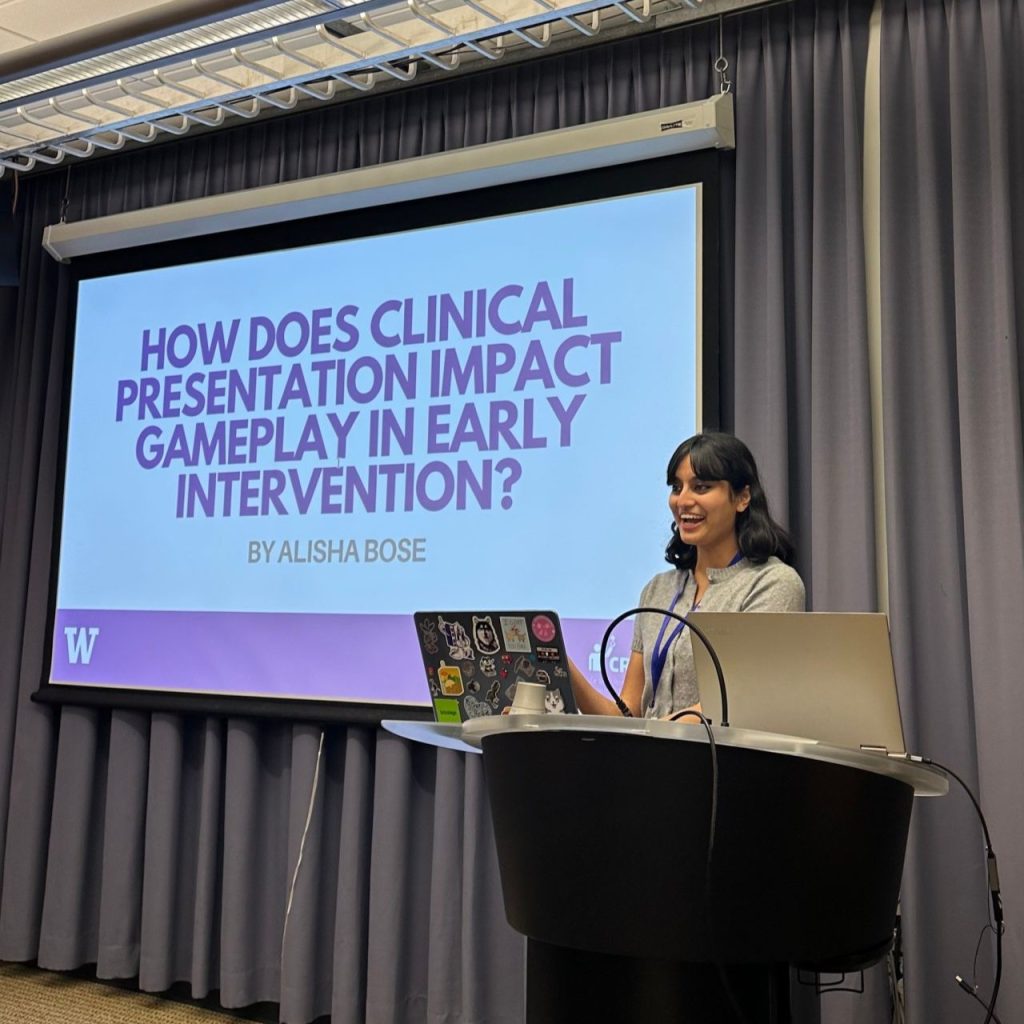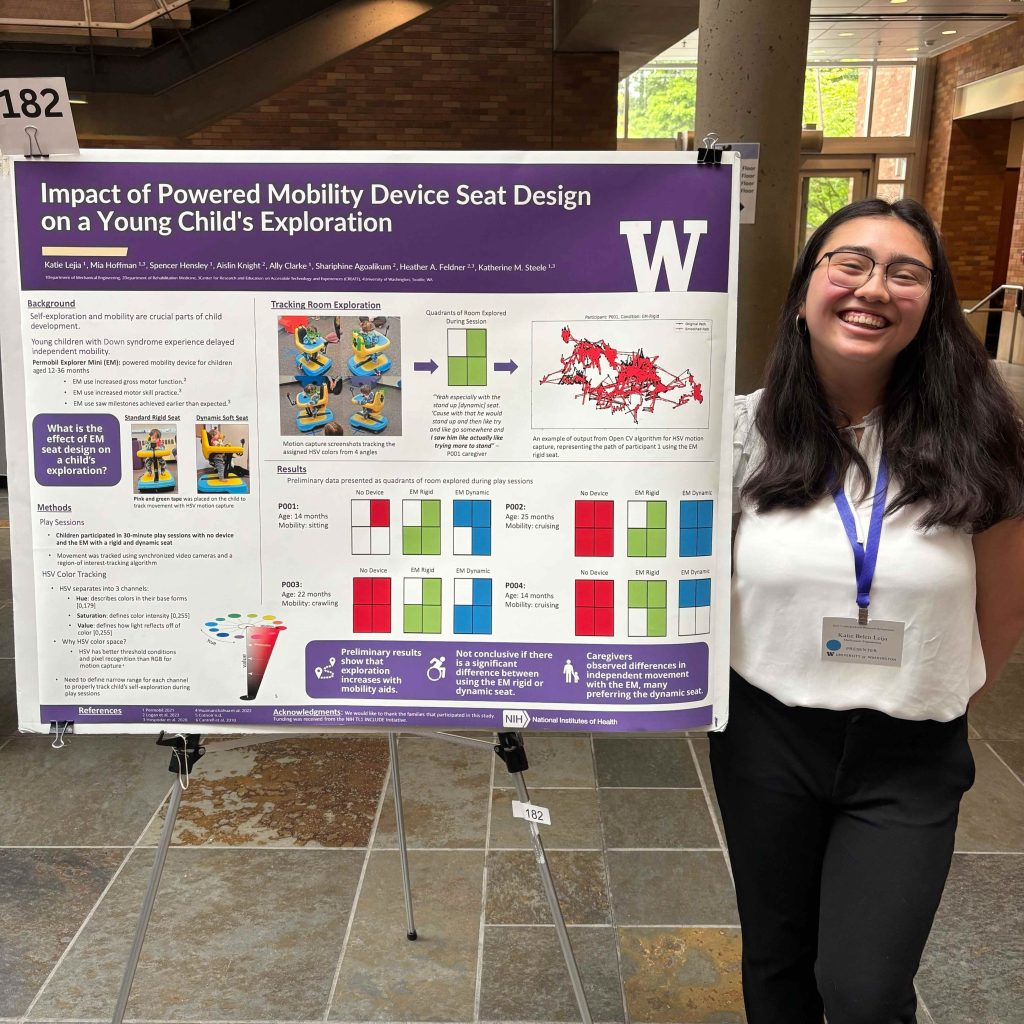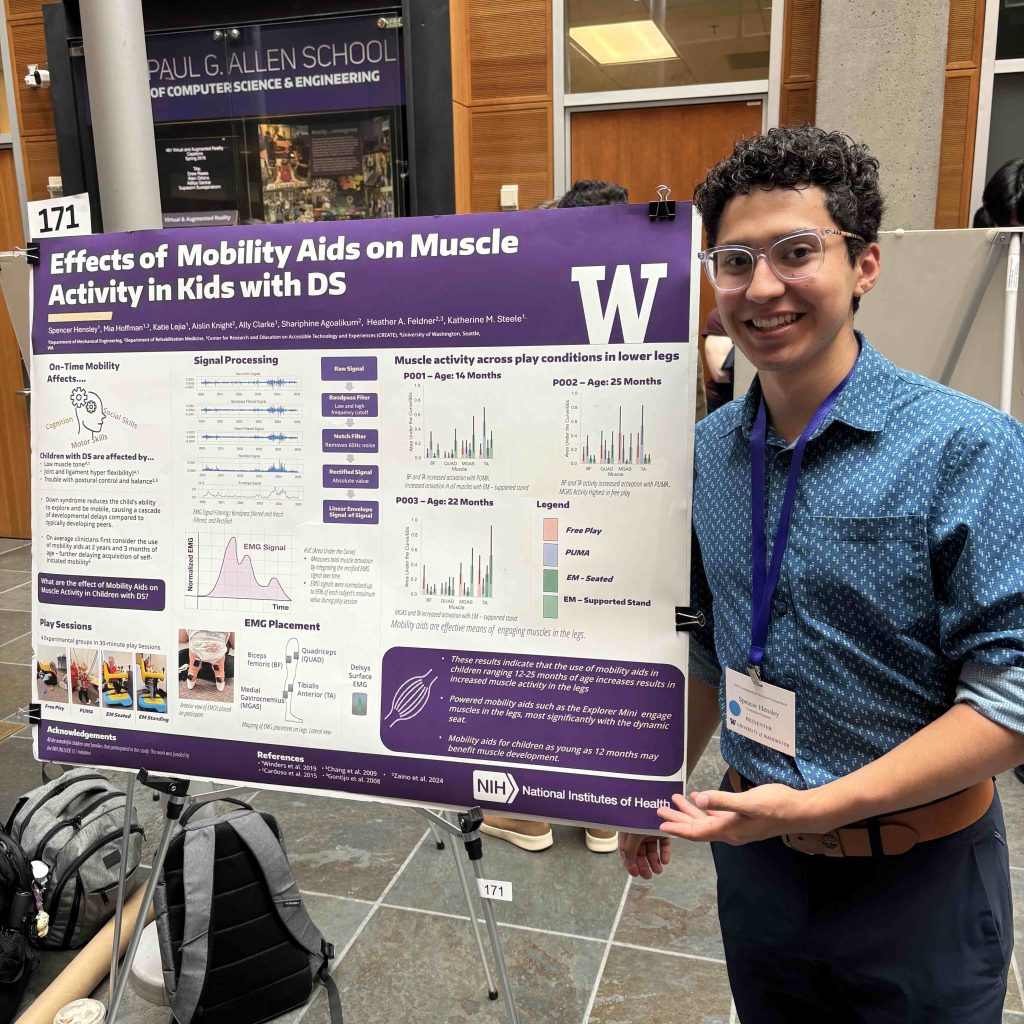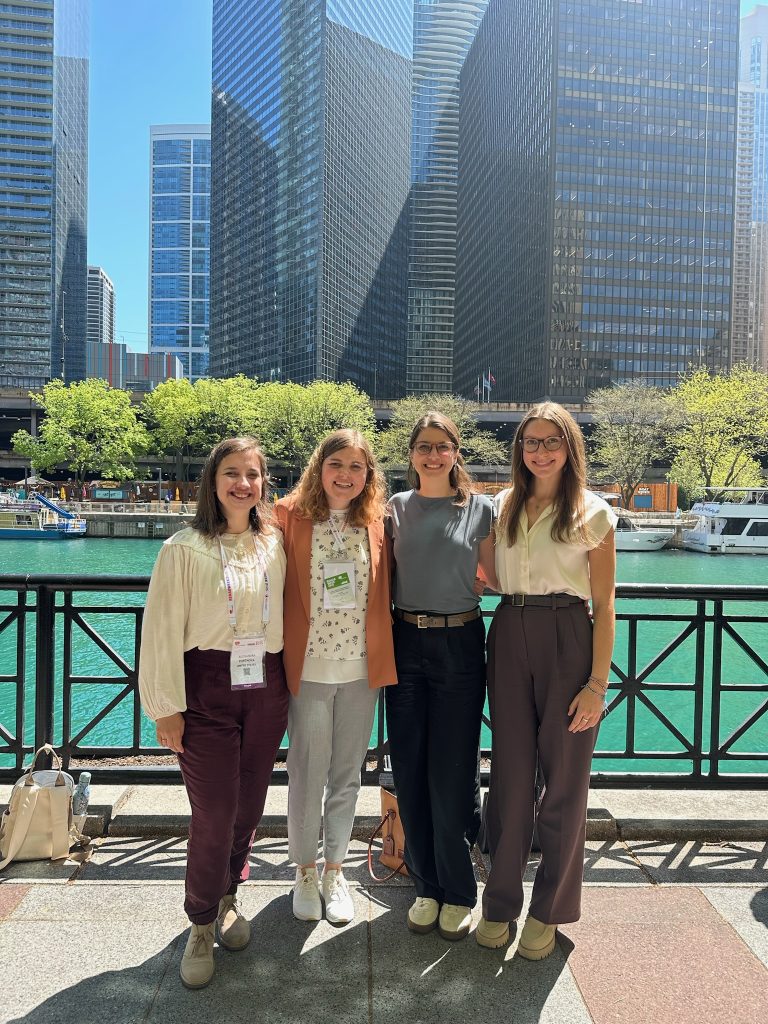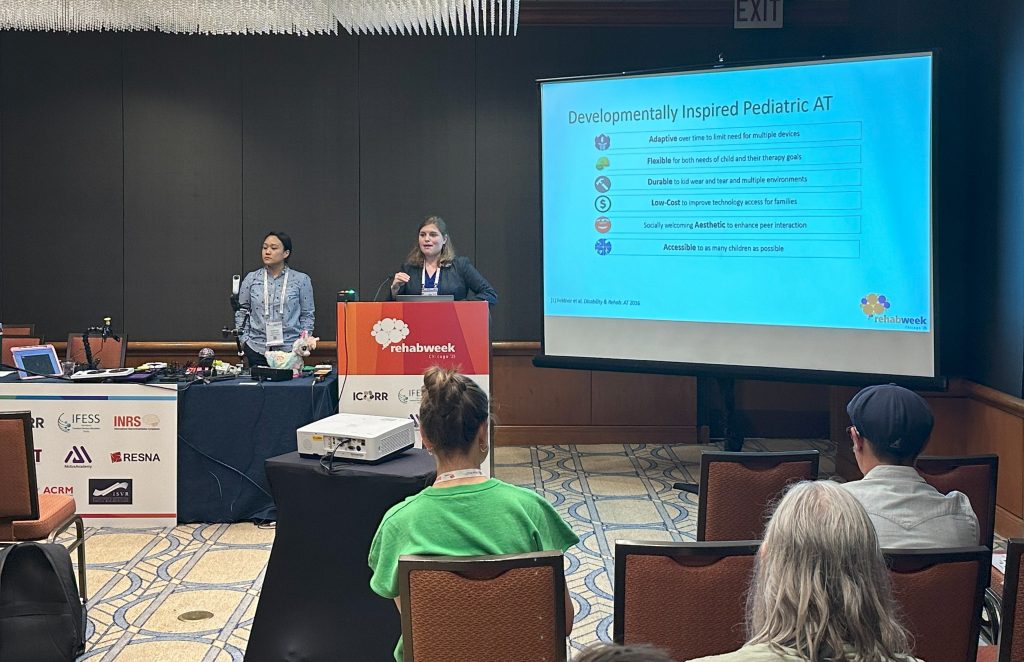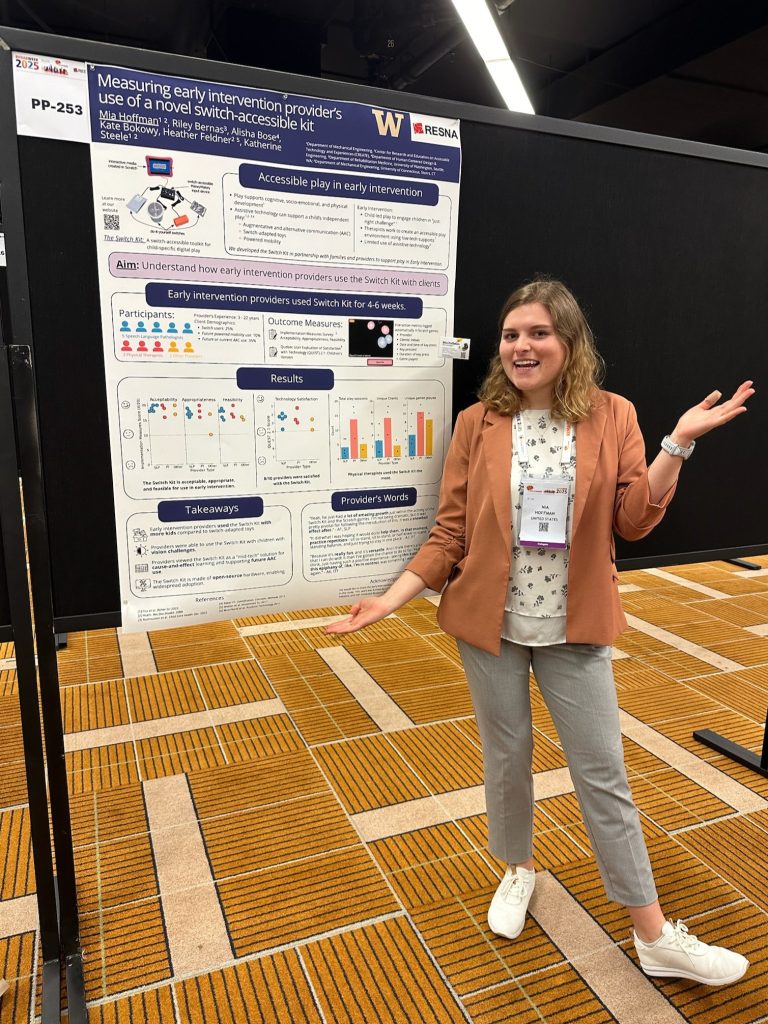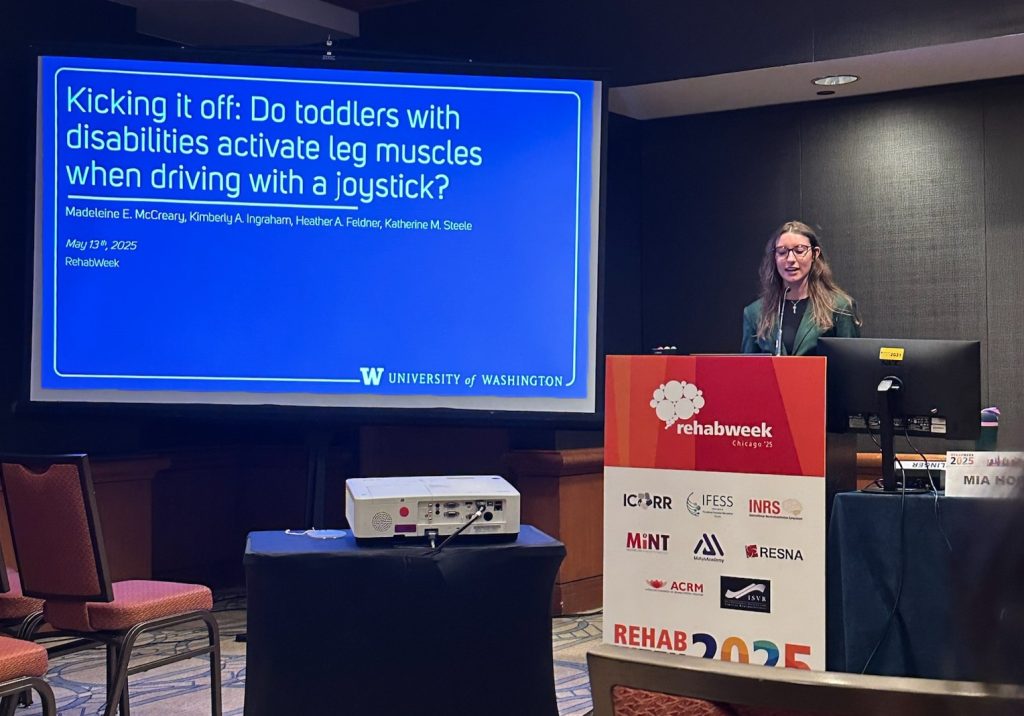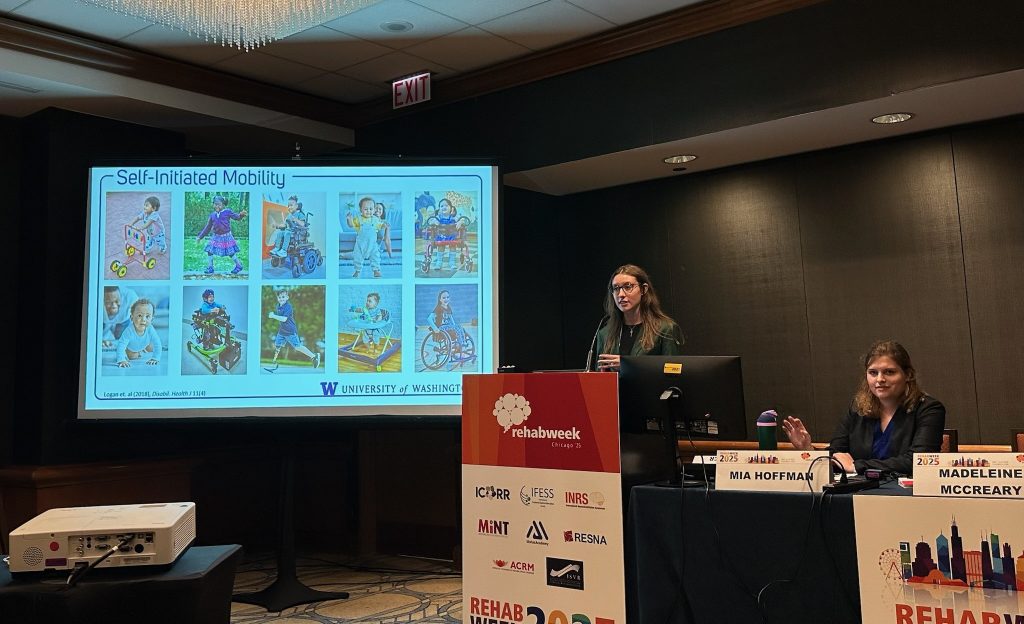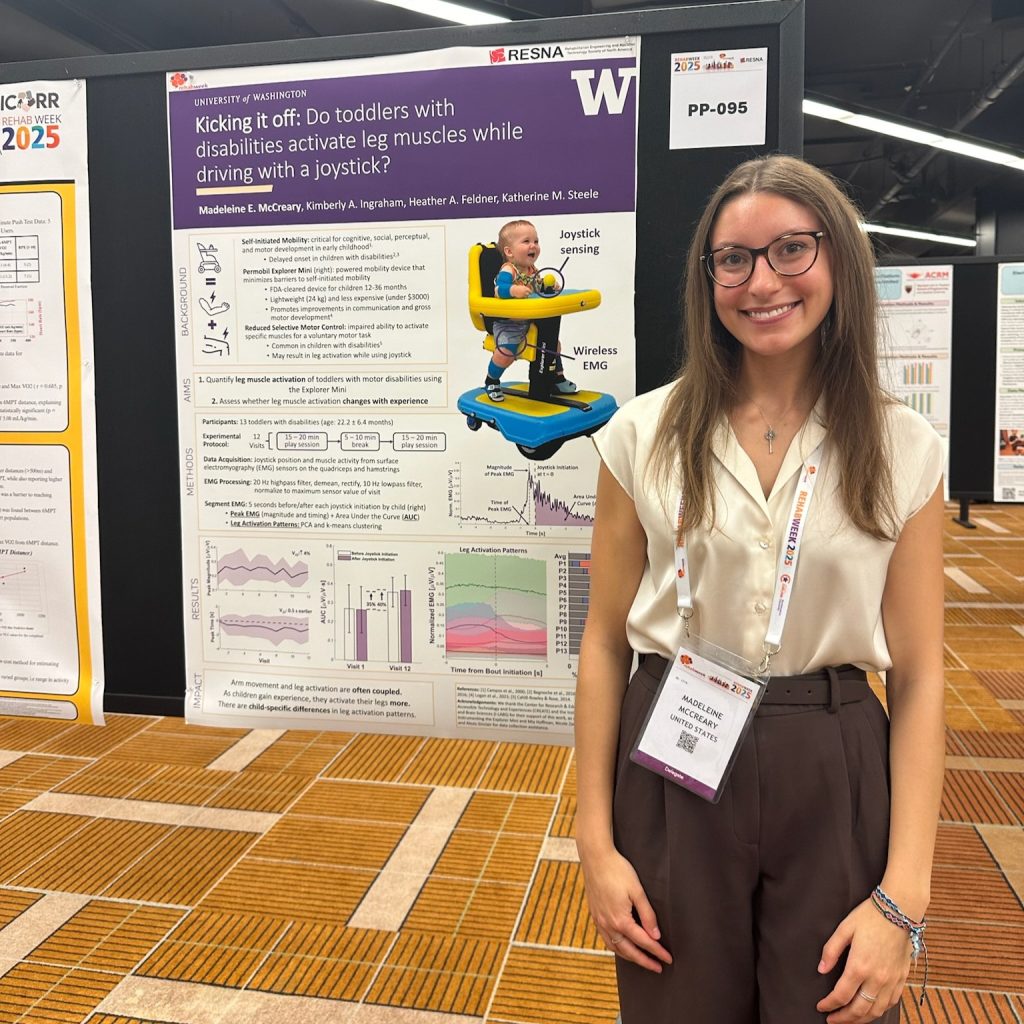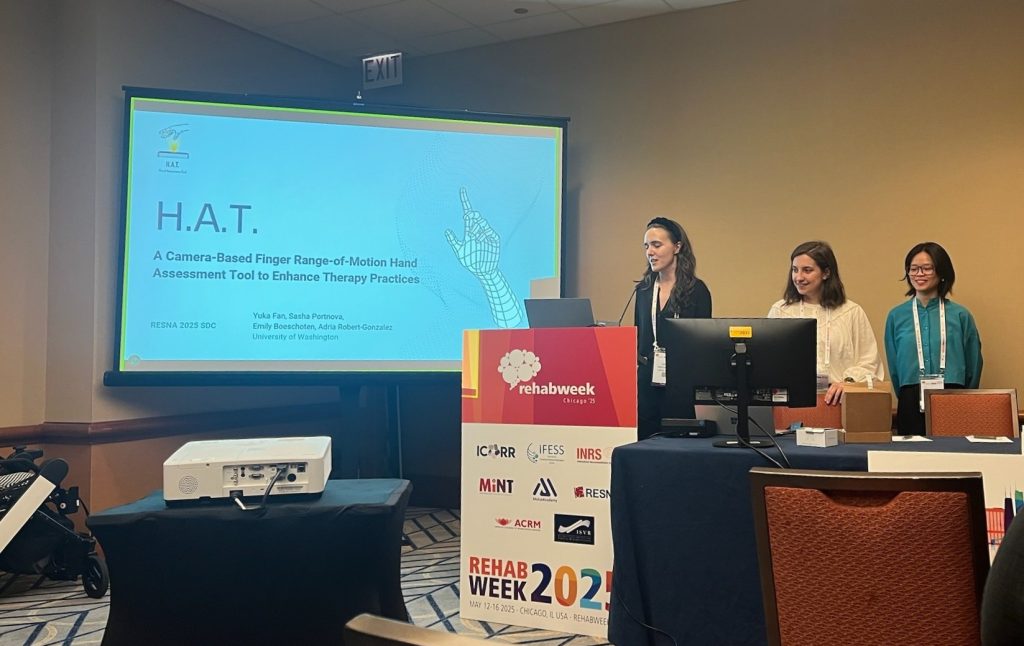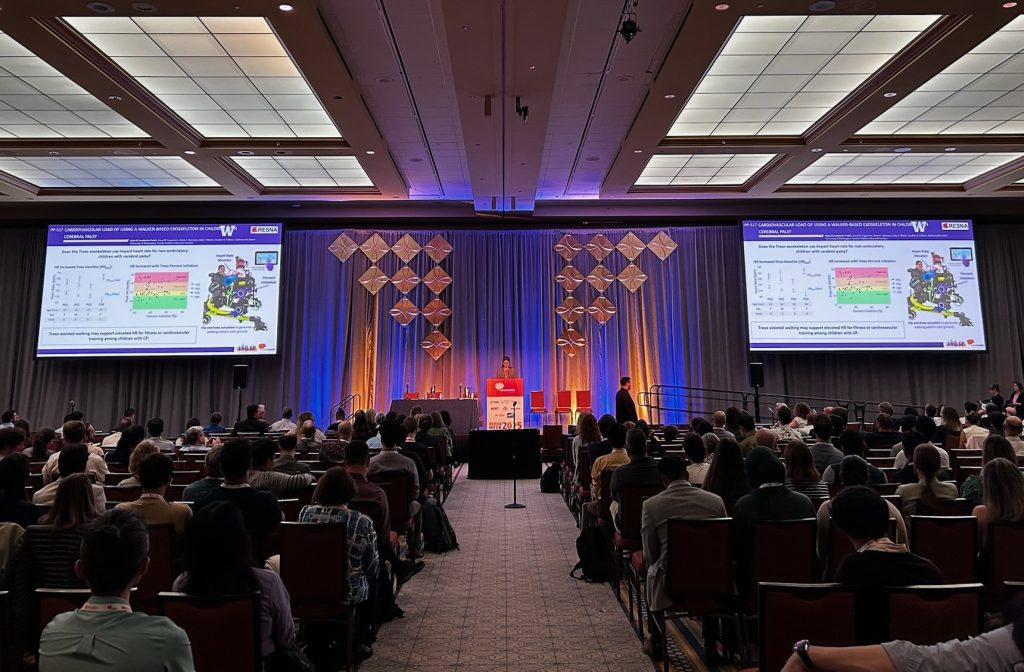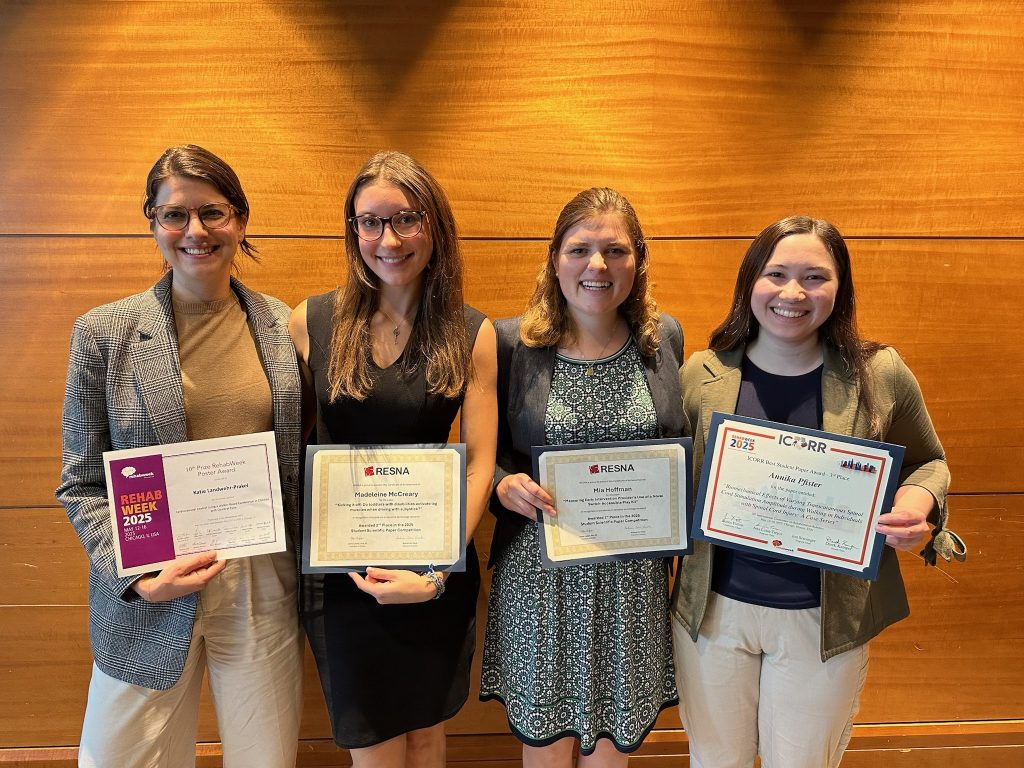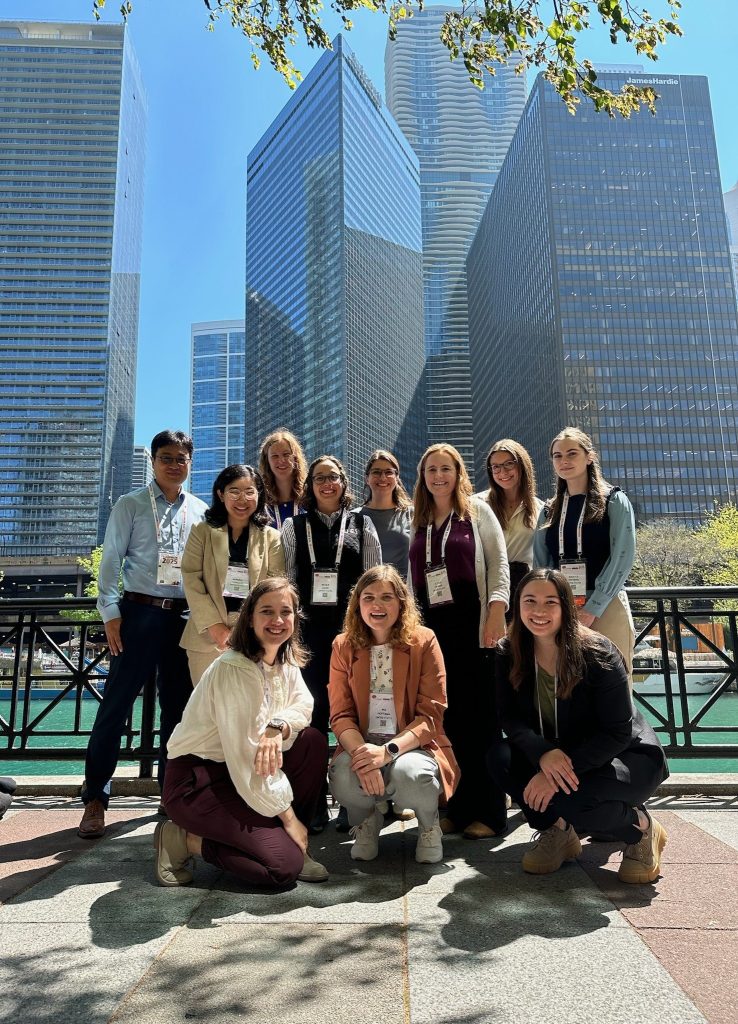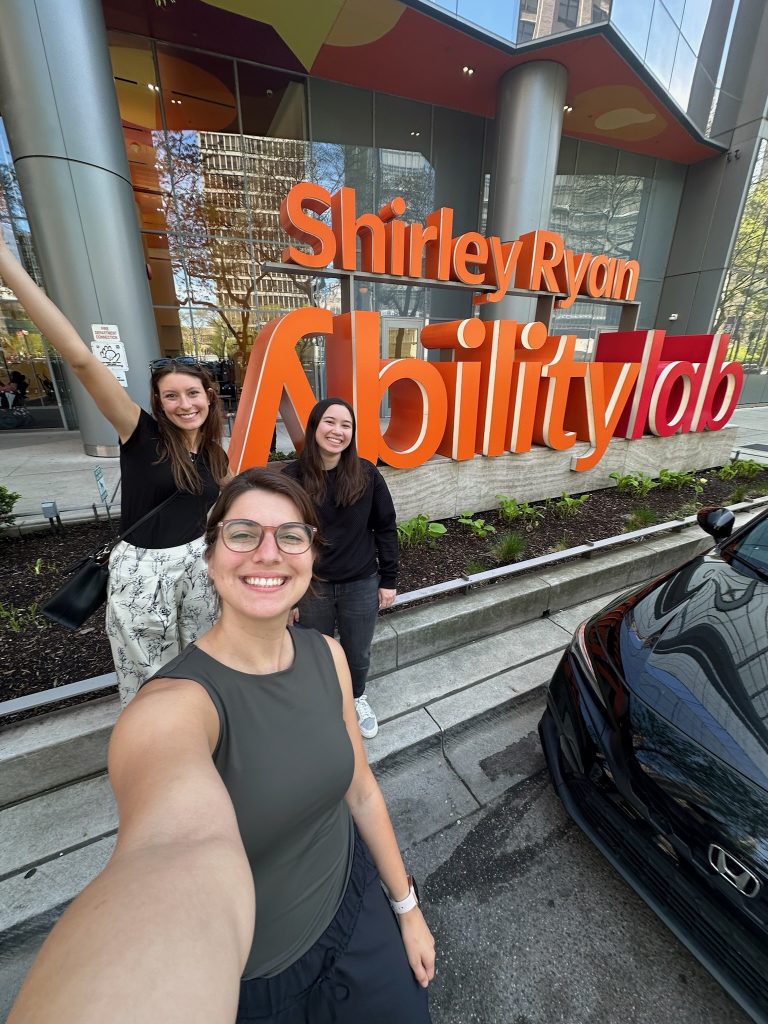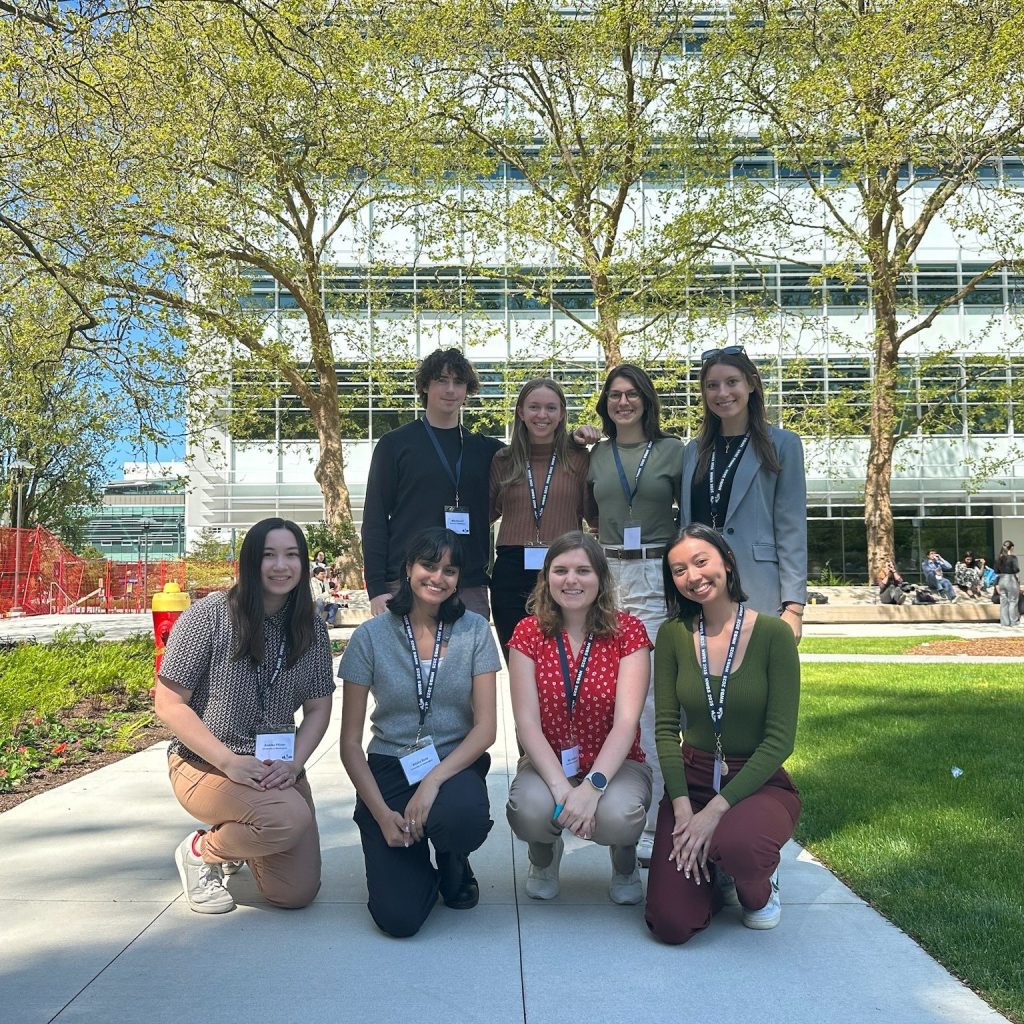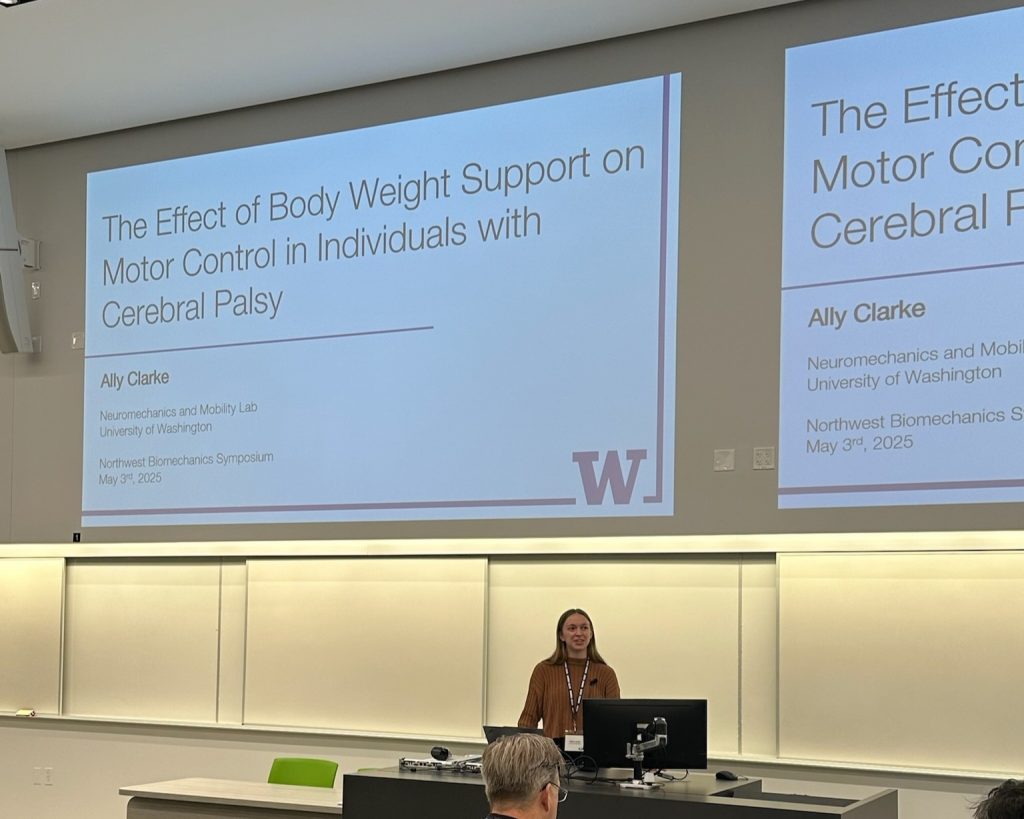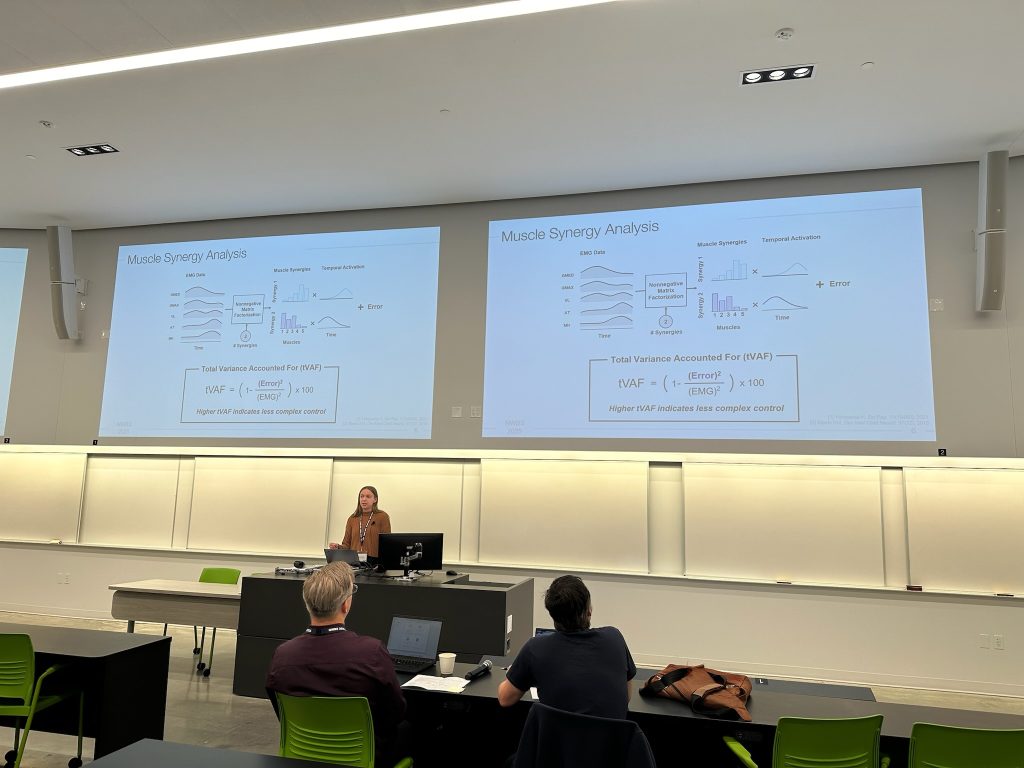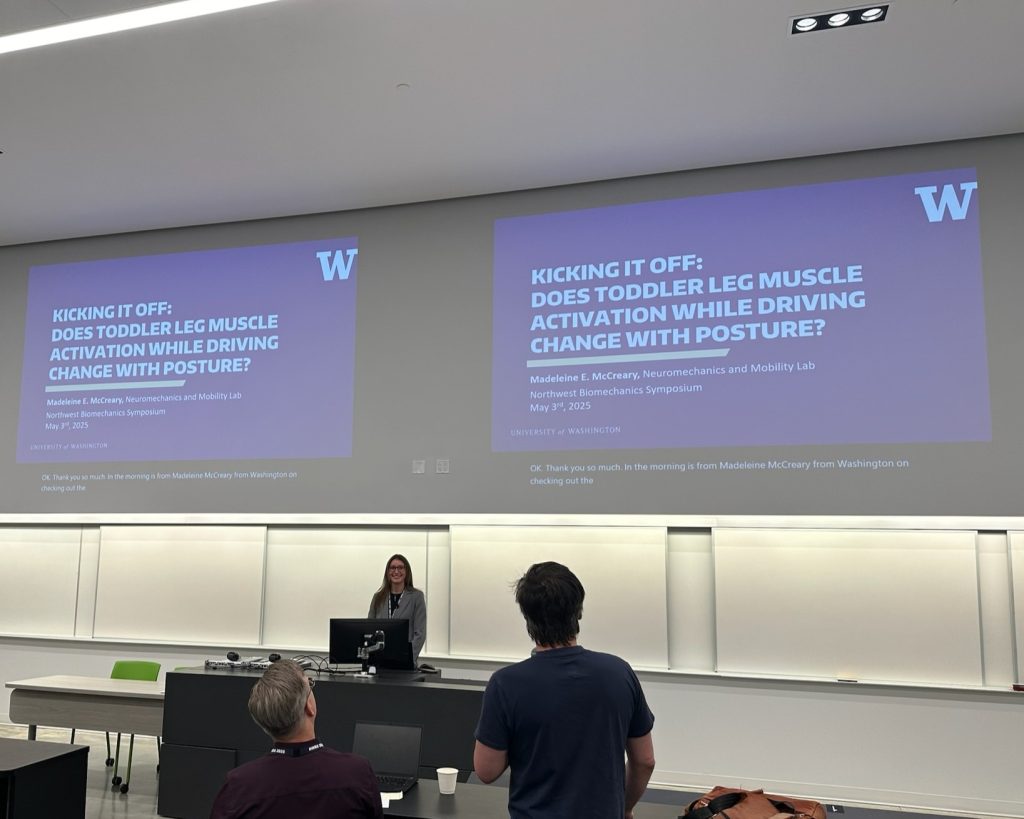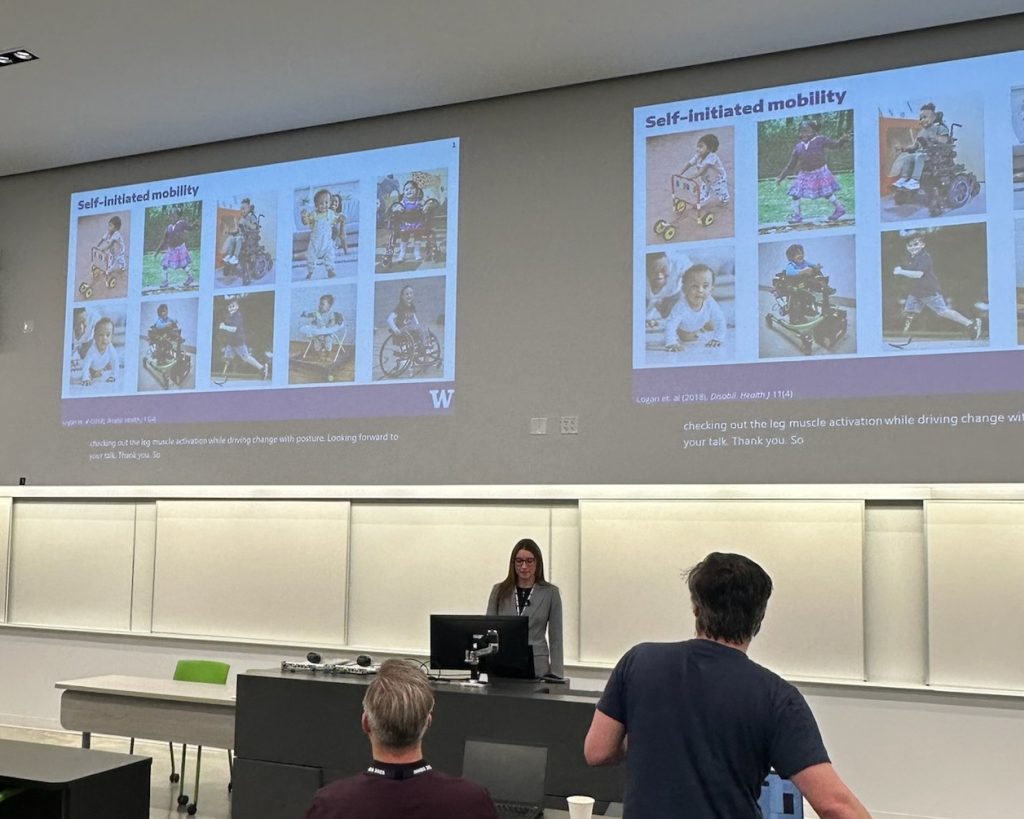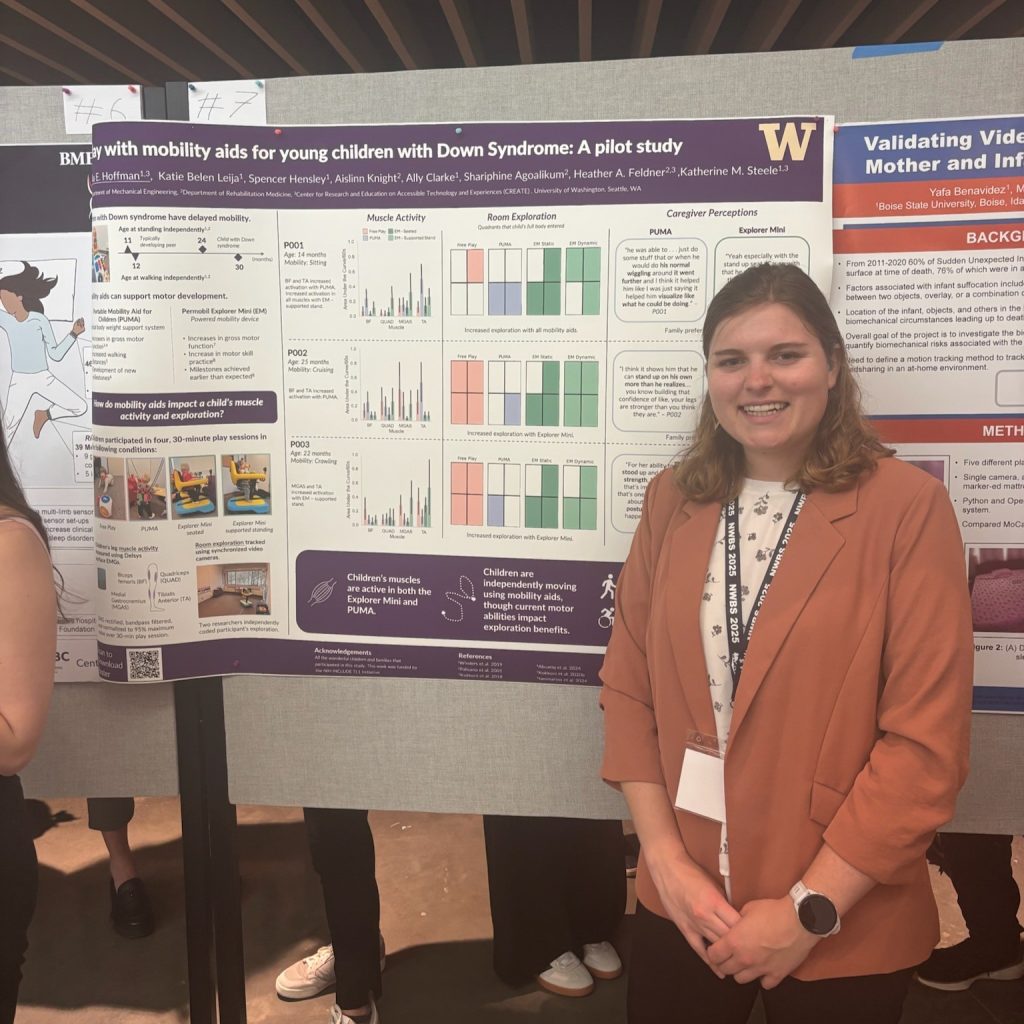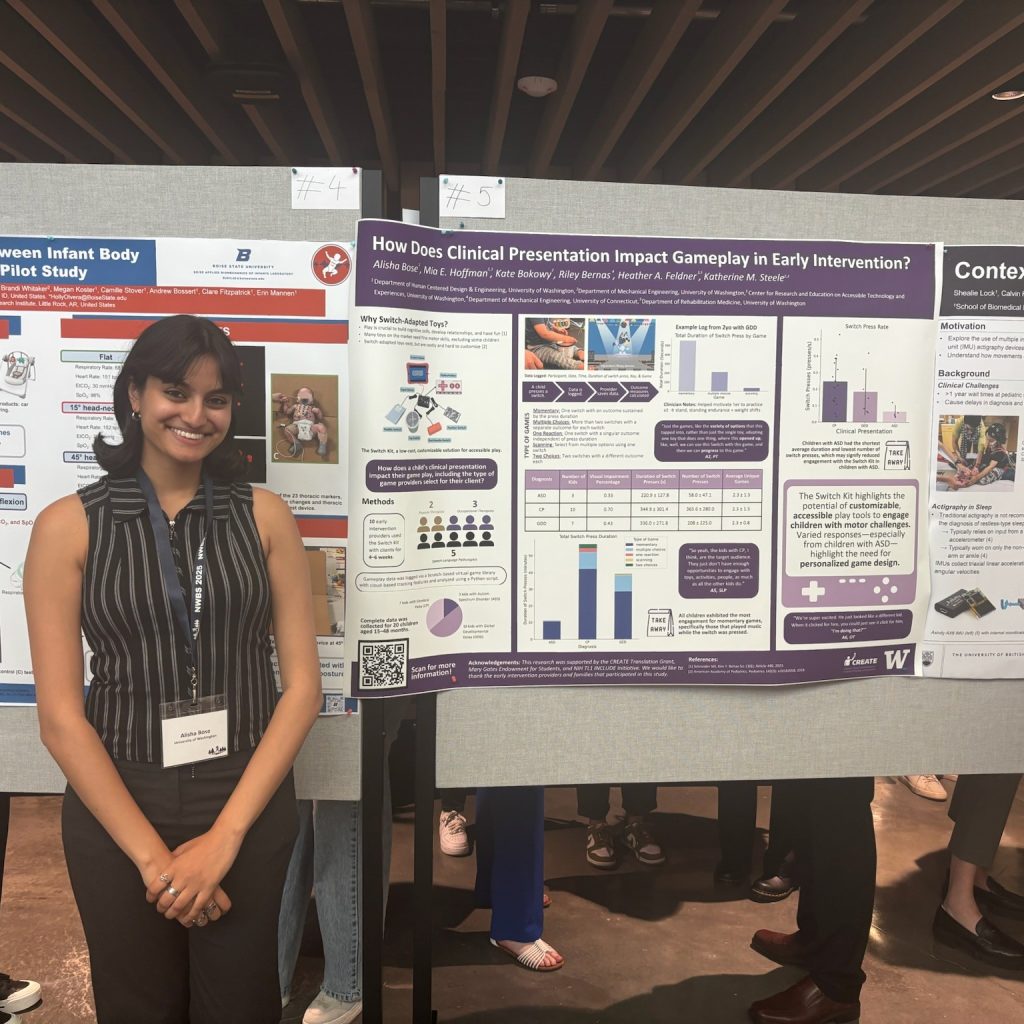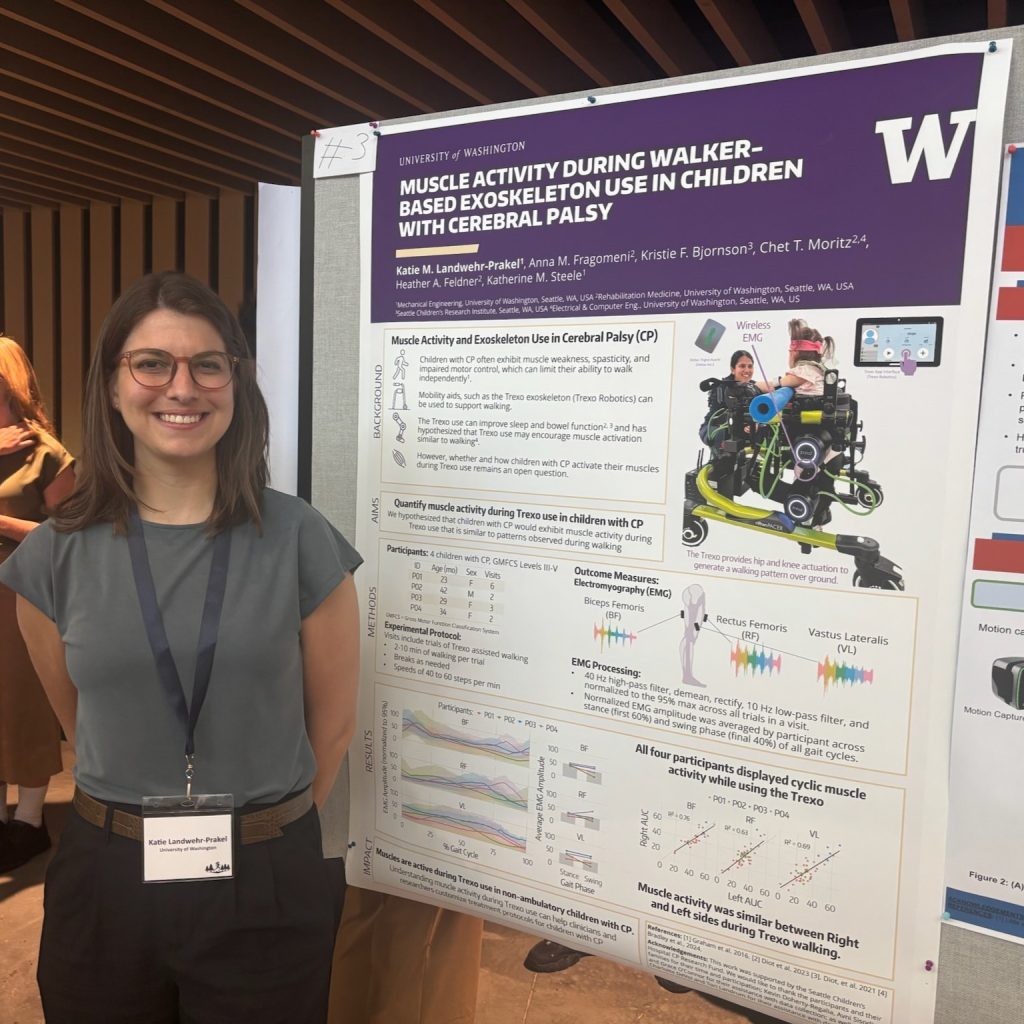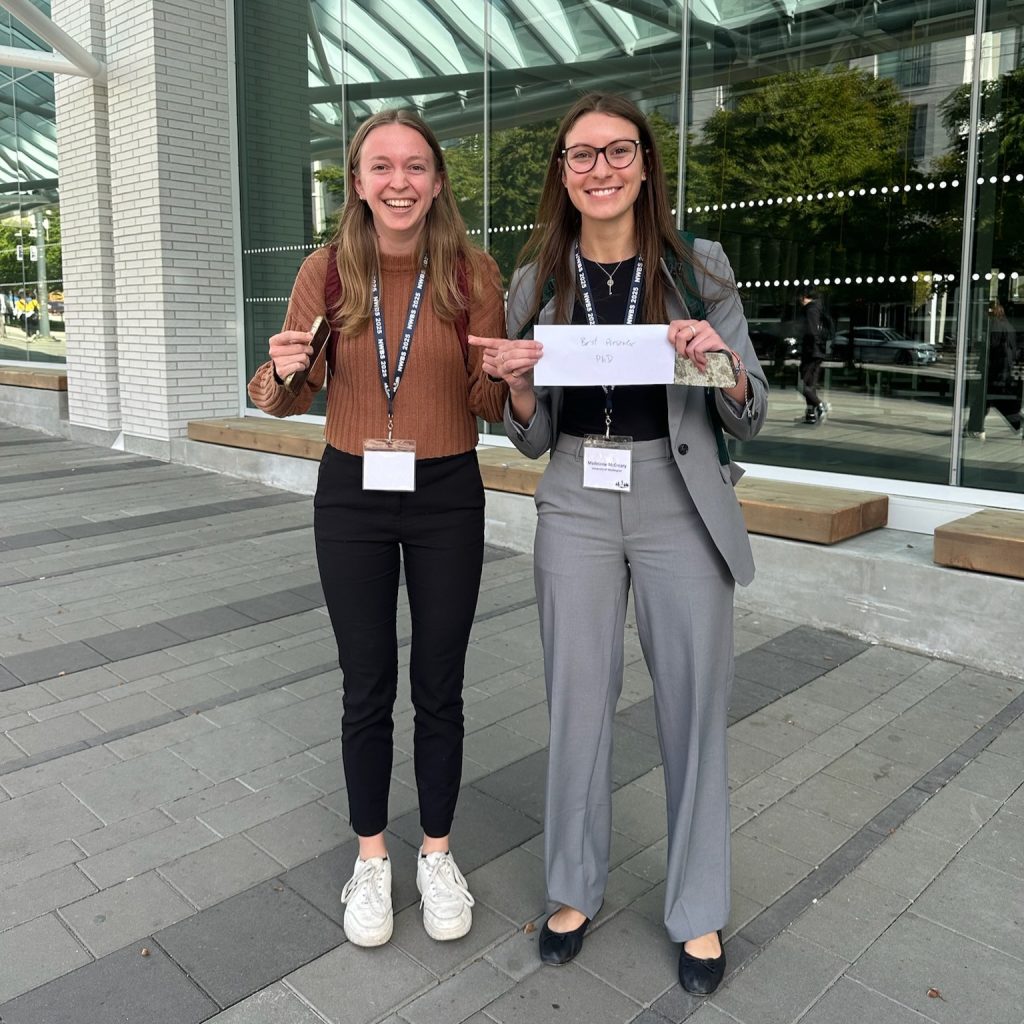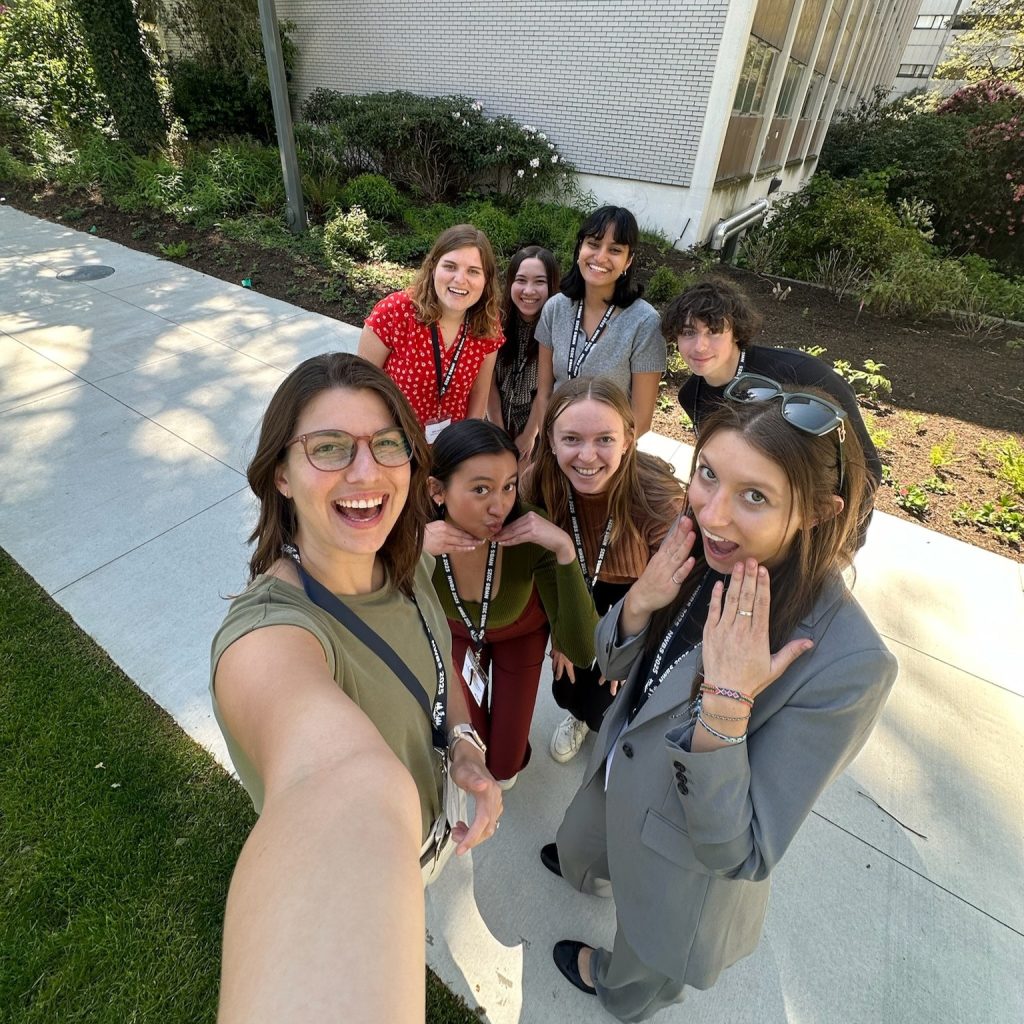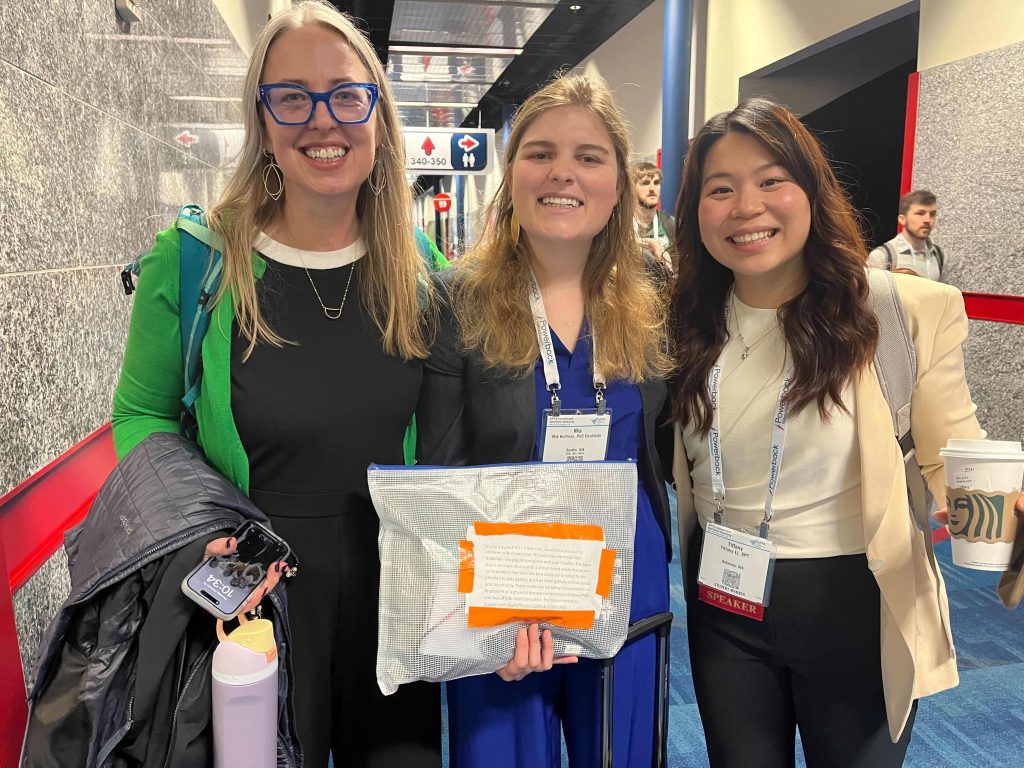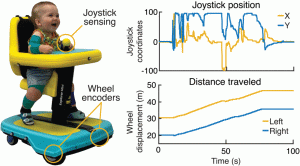The University of Washington Undergraduate Research Symposium is an annual, day-long celebration of undergraduate achievement in research, scholarship, and creative expression. This year, we are proud to highlight the outstanding contributions of our lab’s research trainees who shared their innovative work with the broader academic community.
Alisha Bose delivered a compelling podium presentation titled “How Does Clinical Presentation Impact Gameplay in Early Intervention?” Her research explores how different clinical profiles may influence the way children engage with therapeutic play, contributing valuable insights to the field of accessible design.
Katie Leija presented a poster on “Impact of Powered Mobility Device Seat Design on a Young Child’s Exploration,” examining how adaptive seating affects mobility and interaction in young children using powered mobility devices.
Spencer Hensley shared his work through a poster presentation titled “Effects of Mobility Aids on Muscle Activity in Kids with DS,” which investigates how different mobility aids influence muscle engagement during play in children with Down syndrome.
We are incredibly proud of Alisha, Spencer, and Katie for their dedication and creativity. Their projects reflect the core mission of the Neuromechanics & Mobility Lab—engineering to enhance human mobility, play, and exploration. Through their work, they are helping to advance inclusive design and accessible technology that empowers individuals of all abilities.

